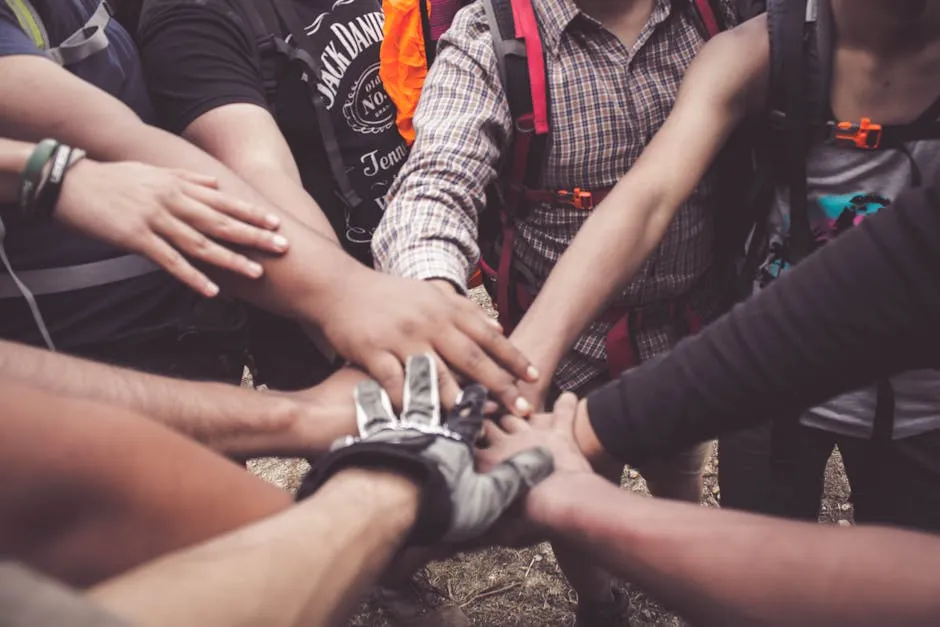
Why Are Some People Named Legs: Unpacking the Curiosity
Introduction
Have you ever encountered someone named “Legs”? It’s certainly an unusual name. Names often carry cultural significance and spark curiosity. They can reflect history, traits, or even playful nicknames. Today, let’s explore the reasons behind this intriguing name.
Speaking of names, if you’re expecting a little one or just love names, check out The Name Book: Over 10,000 Names – Their Meanings, Origins, and Spiritual Significance. It’s a treasure trove for anyone curious about the stories behind names!
Summary and Overview
In this article, we’ll break down the idea of unique names like “Legs.” First, we’ll look at its historical and cultural roots. Then, we’ll discuss how it can represent physical characteristics or serve as a fun nickname. Understanding names like this helps us appreciate their role in our modern society.
If you’re delving deep into the naming world, you might also enjoy The Art of Naming: A Guide to the Language of Names. It’s perfect for anyone who wants to explore the nuances of naming conventions!

The Origins of the Name “Legs”
Historical Context
The name “Legs” has an interesting history. It likely originated as a nickname, rooted in physical traits or behaviors. Throughout different cultures, similar names have appeared, often associated with athleticism or playfulness. Some notable figures, like athletes, have carried this name, reinforcing its connection to physicality.
Speaking of athleticism, if you’re looking to boost your workout routine, check out these Athletic Compression Socks. They can help improve your circulation and keep you comfortable during those long runs!

Linguistic Analysis
Linguistically, “Legs” may derive from simple observations about body features. The term connects to various languages, often describing limbs. Over time, this name has evolved, reflecting changes in society’s attitudes toward names and nicknames. It showcases how language adapts to cultural perceptions, making it a fascinating subject.
Common Reasons for the Name “Legs”
Physical Characteristics
Often, people receive nicknames based on their physical traits. The nickname “Legs” is no exception. For some, it might stem from long legs or impressive athleticism. Think about athletes like basketball players, who often have strikingly long limbs. Their stature can lead to playful associations with their physical characteristics.
Consider someone like a runner, where strong legs are essential. Friends might start calling them “Legs” as a term of endearment. This reflects a light-hearted acknowledgment of their strength or unique physicality. Nicknames often carry these associations, highlighting how our traits shape our identities.

And speaking of strength, if you’re looking to enhance your home workouts, consider Resistance Bands for Home Workouts. They’re versatile and can really up your game!
Cultural References
Pop culture plays a significant role in popularizing names like “Legs.” Characters in movies or television shows often bear such nicknames, influencing societal trends. For instance, a famous character named “Legs” might make the name more appealing.
Celebrity influences also matter. Think of musicians or actors known for their striking legs. Their public personas can lead to fans adopting similar nicknames. This phenomenon shows how media shapes our perceptions of names and their meanings.

Naming Trends and Societal Views
Modern Views on Nicknames
Today, unconventional names are more accepted than ever. Society is moving toward embracing unique identities. The nickname “Legs” reflects this shift. It illustrates how names can empower and foster individuality.
Psychologically, names can impact self-identity. Nicknames often create a sense of belonging. When someone is affectionately called “Legs,” it can enhance their self-esteem. This connection highlights how naming trends evolve with society’s views on identity and acceptance.

If you’re interested in how names shape our lives, you might enjoy reading The Power of Names: How Names Shape Our Identity and Influence Our Lives. It delves into the psychology behind naming and identity!
The Role of Humor and Affection
Have you ever wondered why some people are called “Legs”? It often boils down to humor. Nicknames like this can originate from playful observations, creating a light-hearted connection. They reflect a unique bond between friends, often filled with laughter and joy.
Affectionate names strengthen relationships. When you call someone “Legs,” it shows warmth and familiarity. Such nicknames can make interactions feel more personal. They help us express endearment in a fun way.

In many communities, these playful labels create a sense of belonging. They can symbolize shared experiences and memories. When you hear someone referred to by a quirky nickname, it often sparks a smile. It reminds us of the fun we shared with that person.
And speaking of fun, how about a game night? Check out Name That Tune Board Game for a hilarious evening with friends and family!
The Impact of Nicknames in Personal Identity
Nicknames and Self-Perception
Being called “Legs” can shape how someone sees themselves. Such nicknames can boost confidence. They often reflect positive traits, reinforcing self-identity. When people embrace their nickname, they feel more connected to it.
Psychological studies show names can influence self-esteem. A unique nickname can make someone feel special. It highlights their individuality in a world of common names. This sense of uniqueness can lead to greater confidence in social situations.

Community and Belonging
Nicknames like “Legs” can create a strong sense of community. They foster connections within groups, making everyone feel included. Personal stories about nicknames often reflect shared experiences and laughter.
For instance, friends might recall funny moments tied to the name “Legs.” Maybe it was a story about a race or a silly incident. These memories strengthen the bond between friends and create lasting ties. Nicknames build a sense of belonging, reminding us of the connections we cherish.

If you’re looking for a fun way to remember those moments, consider a Personalized Name Puzzle. It’s a great keepsake for children and can spark wonderful memories!
Conclusion
In this article, we’ve explored the intriguing nickname “Legs.” We discussed its historical roots, physical associations, and cultural references. Understanding names like “Legs” reveals much about personal identity and societal trends.
Names carry weight and meaning, often reflecting our unique traits. They can influence how we perceive ourselves and how others see us. Think about your own names and nicknames. What stories do they tell?

Speaking of stories, if you want to dive deeper into name meanings, The Meaning of Names: A Comprehensive Guide to Name Meanings and Origins is a fantastic resource!
FAQs
What does the nickname “Legs” commonly imply?
The nickname “Legs” often suggests long limbs or athleticism. It can also reflect a person’s playful energy. People might associate it with someone known for their physical prowess or humorous traits.
Are there famous people named “Legs”?
Yes, several notable individuals have this nickname. For example, Legs McNeil is a well-known punk journalist. Another example is Legs Larry Smith, a member of the British comedy group The Bonzo Dog Doo-Dah Band.
How do cultural differences affect naming conventions?
Different cultures view nicknames uniquely. In some cultures, affectionate nicknames are common. Others may focus on characteristics or achievements. Understanding these differences enriches our appreciation of names.
Is “Legs” a common nickname in certain regions?
Yes, “Legs” is more popular in certain areas, particularly among athletes. Sports communities often adopt such nicknames for their fun and playful nature. The nickname may vary in popularity based on local culture and trends.
Can names influence people’s perceptions of you?
Names carry weight. They shape how others see you. Research shows that names can influence social interactions. A study by the University of California found that people often judge others based on their names. Unique names, like “Legs,” can spark curiosity and interest.
Statistics reveal naming trends over the years. In recent decades, unique names have surged in popularity. For instance, the Social Security Administration reported a rise in unconventional names among newborns. This shift reflects changing societal views on identity and individuality.
Nicknames also play a role in perception. They often convey affection or humor, creating bonds. In various cultures, the meanings of nicknames can differ. For example, in some communities, “Legs” signifies athletic ability or playfulness. This adds a layer of meaning that can enhance connections.

Psychological studies highlight the impact of names on self-esteem. Names can influence how individuals perceive themselves. A name like “Legs” might boost confidence for some, emphasizing their unique traits. Conversely, a name that is frequently mispronounced can lead to frustration and insecurity.
If you’re interested in a deeper dive into the psychological aspects of names, consider Nicknames: A Social and Cultural History. It explores how nicknames have evolved through time and their significance in society!
So, what’s your experience with unique names? Have you felt their impact in your life? Share your thoughts in the comments below!
Please let us know what you think about our content by leaving a comment down below!
Thank you for reading till here 🙂
All images from Pexels




